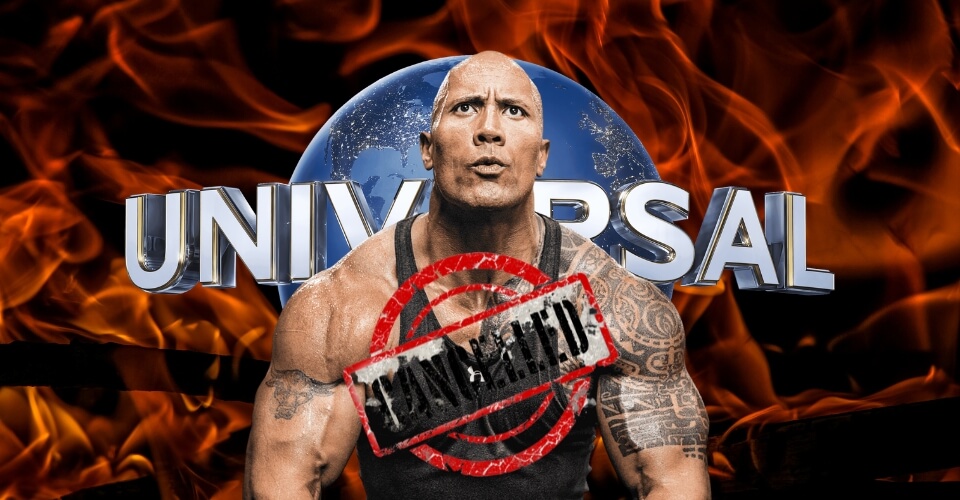The Screen Actors Guild and American Federation of Television and Radio Artists (SAG-AFTRA) strike, which began in July, has sent shockwaves through the entertainment industry, resulting in far-reaching implications that have significantly affected production processes for numerous upcoming projects.
One of the striking aspects of this labor dispute is its wide-reaching impact on the industry. Production of films, television shows, and other content has been delayed or halted due to the strike, causing a significant slowdown in the creation of new entertainment content.
Adding to the complexity of the situation, several major production houses have decided to cancel or suspend contracts with key industry figures.
Considering the writers’ strike and the big remuneration for The Rock, Universal Studio Group canceled its contract with Dwayne “The Rock” Johnson’s Seven Bucks Productions. This decision, echoing similar actions by other studios, is a response to the uncertain future posed by the SAG- AFTRA strike and the associated demands of the guilds.
Why Did Universal Studios Cancel Deal with Dwayne Johnson?
In a significant development this week, Universal has announced the termination of its contract with Hollywood actor Dwayne “The Rock” Johnson.
This decision comes in the midst of an ongoing labor dispute between the Writers Guild and the entertainment industry’s studios and streaming services. Notably, Universal Studio Group, a division of NBCUniversal, has taken an extraordinary measure by suspending several major contracts, including those of prominent figures like Lorne Michaels and Dwayne Johnson.
This move is a reflection of the writers’ strike in Hollywood, which has now extended into its 20th week, causing substantial uncertainty for various high-profile projects.
The partnership between Universal Studios Group and Seven Bucks Productions is indeed a substantial one. Established in 2012 by Dwayne “The Rock” Johnson and his ex-wife Dany Garcia, Seven Bucks Productions has played a pivotal role in the creation of numerous successful mainstream films and projects like “Jungle Cruise,” “Jumanji: Welcome to the Jungle,” Warner Bros.’ “The King,” and Netflix’s “John Henry.”
Universal’s recent decision to halt its ongoing agreement with Seven Bucks Productions also mirrors a similar move by Warner Bros. Discovery, which recently suspended contracts with renowned writers such as J.J. Abrams, Mindy Kaling, Bill Lawrence, and Greg Berlanti.
These developments have underscored the far-reaching impact of the ongoing writers’ strike on the entertainment industry, affecting both major studios and high-profile creative partnerships.
What Is the SAG-AFTRA Strike?
In July, the Screen Actors Guild and American Federation of Television and Radio Artists (SAG-AFTRA) initiated a strike, aligning themselves with the Writers Guild of America (WGA), all rallying for improved pay and job security while shedding light on the expanding disparities in the film and television industry.
One of their key demands revolves around safeguarding against the recognition of raw, AI-generated storylines or dialogue as “literary material,” a term present in their contracts for scripts and other narrative forms created by screenwriters. This move aims to ensure that writers are not pitted against computer-generated content when it comes to credit or contention for an original screenplay Oscar.
Apart from AI-related protections, SAG-AFTRA is advocating for equitable wage increases for video game performers, mirroring the compensation gains secured by those working under film and television contracts.
This includes an 11% retroactive increase to the contract’s expiration and 4% incremental raises in the second and third years of the agreement, crucial for keeping members’ incomes in line with inflation rates.
It’s notable that actors are throwing their support behind this strike, driven by concerns about maintaining control over AI’s role in the screenwriting process and fears of AI replicas of themselves being used without fair compensation.
Currently, there’s uncertainty regarding the strike’s conclusion date, casting a shadow over on-camera work encompassing acting, singing, dancing, stunts, piloting on-camera aircraft, puppeteering, performance capture, and motion capture work.
It also significantly impacts off-camera roles, such as narration, voice-overs, background work, and even auditioning processes, highlighting the widespread impact of this labor dispute in the entertainment industry.
For the unversed, the last SAG strike ended within three months, but no one knows how long the current strike would last!
What’s your take on the whole AI issue within the entertainment industry? Let us know below!

